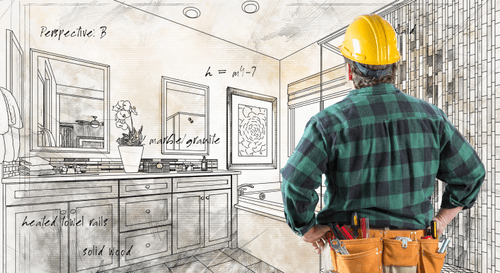Introduction
The construction industry plays a crucial role in shaping the physical landscape of our cities and communities. From residential buildings to commercial complexes, ensuring the structural integrity and quality of construction projects is paramount. One key aspect that often goes overlooked is pre-construction inspections. These inspections, conducted before construction begins, serve as an effective tool to prevent defects and ensure the smooth execution of the project. In this blog post, we will explore the importance of pre-construction inspections and how they contribute to preventing defects right from the start.
Identifying Potential Problems
Pre-construction inspections involve a comprehensive assessment of the construction site and its surroundings. By conducting a thorough inspection, potential issues can be identified early on, giving developers and contractors an opportunity to address them before they turn into costly and time-consuming problems. Some of the common issues that can be identified during pre-construction inspections include:
- Soil Conditions: Assessing the soil quality and stability is crucial for ensuring a strong foundation. Pre-construction inspections can identify issues such as poor soil compaction, excessive moisture, or the presence of expansive soils, which can lead to settlement or foundation movement.
- Environmental Factors: Inspections can uncover potential environmental challenges that may impact the construction process, such as the presence of hazardous materials, protected species, or wetlands. Identifying these factors early on allows for proper planning and compliance with regulations.
- Reviewing Material Specifications: Pre-construction inspections also involve a thorough review of material specifications. This step ensures that the materials chosen for construction are of the required quality, durability, and suitability for the intended purpose. Inspections may include verifying the strength and integrity of structural components, evaluating the energy efficiency of insulation materials, and assessing the durability of finishes. By verifying the quality of materials, potential defects related to material deficiencies can be prevented, enhancing the overall performance and longevity of the construction.
- Identifying Compliance with Building Codes and Standards: Adherence to building codes and standards is crucial to ensure safety and regulatory compliance. Pre-construction inspections play a vital role in identifying any potential deviations from these codes and standards. Inspectors thoroughly examine the construction plans, materials, and site conditions to ensure that all aspects of the project align with the established guidelines. Addressing code violations early on helps avoid costly penalties and rework later, while also ensuring the safety and well-being of the occupants.
The Benefits of Pre-Construction Inspections
- Cost Savings: Detecting and rectifying defects during the construction phase can be significantly more expensive than addressing them during the pre-construction stage. By investing in comprehensive inspections upfront, potential problems can be identified early, reducing the need for costly rework and repairs down the line.
- Enhanced Safety: Pre-construction inspections prioritize safety by identifying potential hazards or risks associated with the design, materials, or site conditions. Addressing safety concerns beforehand mitigates the chances of accidents, injuries, or structural failures, ensuring a safer working environment for construction personnel and future occupants.
- Quality Assurance: By addressing potential defects early on, the construction team can ensure that the final product meets the required standards of quality. This helps prevent rework and the need for costly corrective measures after construction is complete.
Conclusion
Pre-construction inspections serve as a vital step in preventing defects and ensuring a successful construction project. By identifying potential issues early on, developers and contractors can proactively address them, leading to improved planning, enhanced safety, and overall project success. Investing time and resources in pre-construction inspections is a prudent approach that saves both money and time in the long run. By starting the construction process on a solid foundation, you can build with confidence and deliver a high-quality end product.

